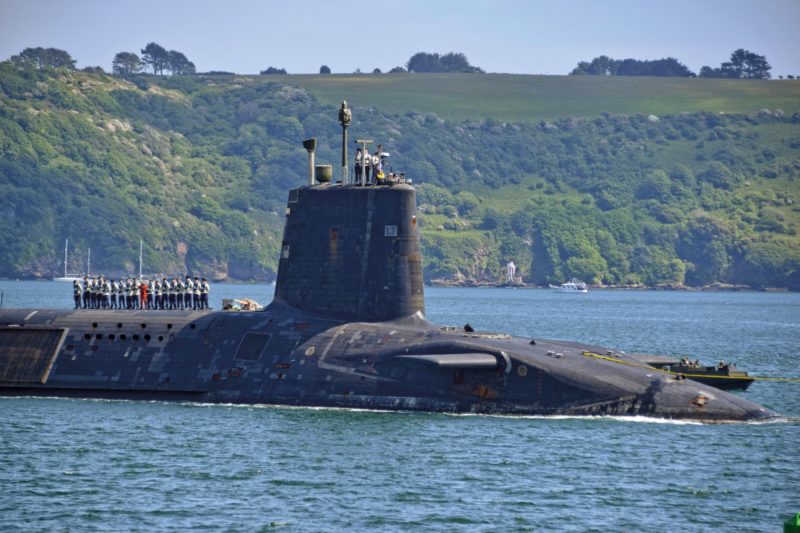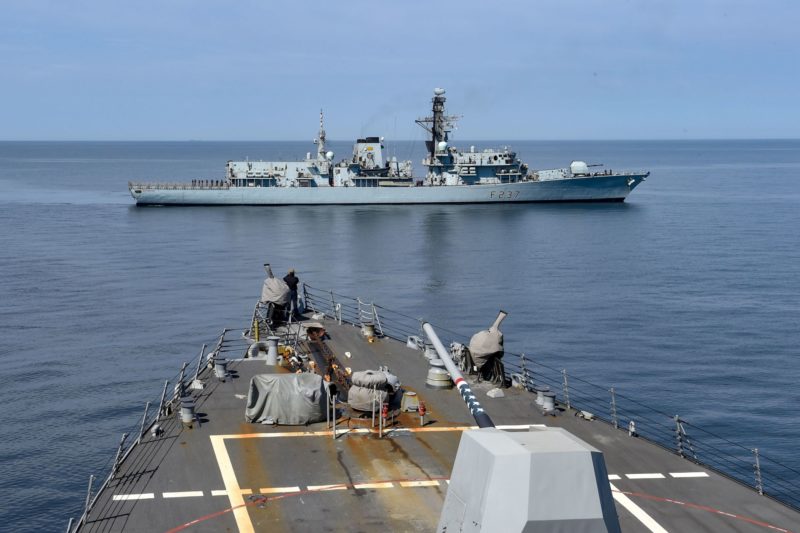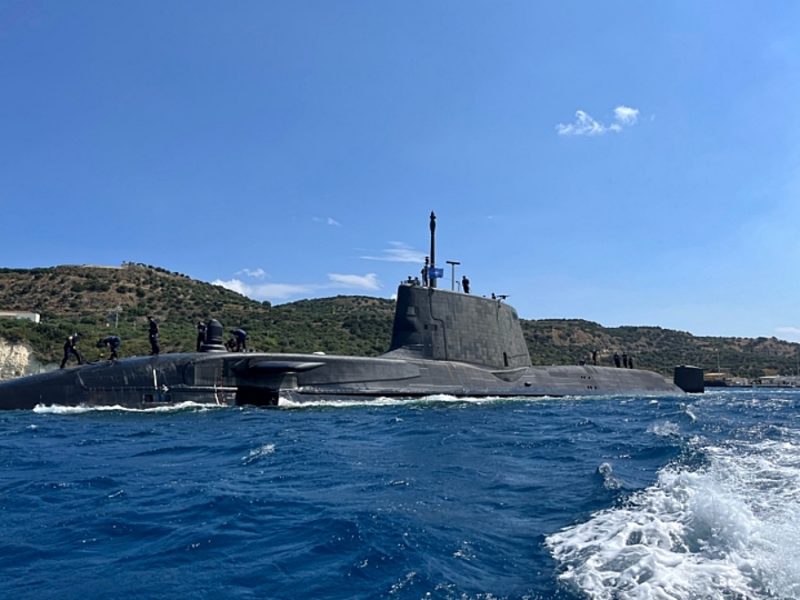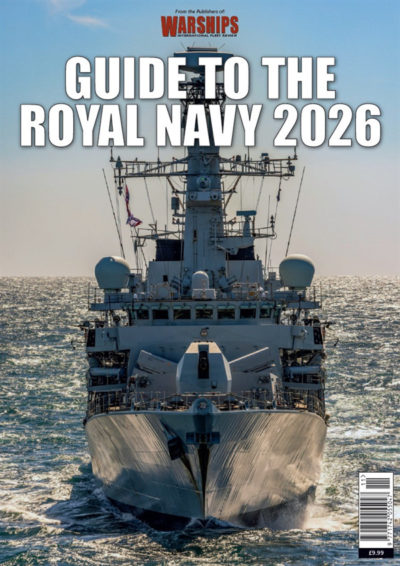
During his address to the First Sea Lord’s Seapower Conference in London last month (May), then Secretary of State for Defence Grant Shapps, highlighted how Ukrainian drones have damaged or destroyed 30 per cent of Russia’s Black Sea Fleet (BSF).
He also pointed out that the Houthis’ use of cheap drones has placed a “chokehold on global trade worth around a trillion dollars.” He felt these were examples of how “we are operating in a new military age.” And yet the war in the Black Sea is atypical – the Russians seem curiously incompetent at defending their ships at sea or in harbour. The Black Sea is a confined battlespace and the fact that no major naval reinforcements can be sent in via the closed Turkish Straits does not help Russia. It would be foolish to use it as a metric of how future wars will be fought. Meanwhile the Houthis of Yemen are being handled with kid gloves in order not to exacerbate the situation in the Gaza War.
In neither theatre of war has full spectrum naval power been unleashed. Anyway, Shapps was soon out of office due to a General Election being called by Prime Minister Rishi Sunak for July 4, so his perspective is now yesterday’s news. In his Seapower Conference speech Shapps highlighted that the UK currently has 28 warships in the process of procurement or under construction, which seems a very rosy picture indeed. But it masks the impact of many of them being years overdue – and let’s not forget the 16-year absence of any frigate construction in the UK. Will a Labour government be any better? The former Conservative govt’s pledge to increase defence spending to 2.5 per cent of GDP by 2030, and its much-touted Golden Age of Shipbuilding, will no doubt be carried on if Labour wins power.
When prospective next P.M. Sir Keir Starmer spoke about defence and security last month he outlined “a new triple-lock commitment” to the nuclear deterrent. His “new” measure is actually old. The Conservative govt was already doing so – it committed to building four new Dreadnought Class ballistic missile submarines (SSBNs) years ago, has maintained a Continuous at-Sea Deterrent (CASD) and also pledged to provide “all the needed future upgrades,” as Starmer put it.
Politicians like making big speeches about the future UK nuclear deterrent force, because it is an aspect of Defence that shows massive investment in highly-skilled jobs across the nation, and enables them to dodge making radical decisions on conventional forces.


Starmer also had much to say on starry-eyed apprentices he met at Devonport Dockyard in Plymouth working on refitting the current generation of submarines. However, a commitment to the future SSBNs they will work on also requires dedication to ensuring the Royal Navy has enough frigates with Anti-submarine Warfare (ASW) capability, gets hunter-killer submarines (SSNs) out to sea and Merlin helicopters aloft to protect SSBNs on exit & return to Faslane. Plus P8 Maritime Patrol Aircraft (MPAs) of the RAF in the skies whenever needed. Or the deterrent is insecure. As is well-known to readers of this magazine, the Royal Navy is currently shedding frigates at an alarming rate – creating a capability gap of some years before their replacements enter service. In recent times the UK has been lucky to get one SSN to sea, and sometimes none at all, partly due to a lack of dry docks to receive them for work at Devonport. Dock upgrades have taken so long that the SSN HMS Audacious, for example, has been waiting more than a year to get into one. At the beginning of this year the SSBN HMS Victorious was still only receiving preliminary work in the Devonport’s 5 Basin – despite arriving in Devonport for her refit in May 2023. Starmer had nothing to say on how he plans to relieve the strain on the SSBN crews, on patrol for a mind-bending seven months at a time due to the deterrent cycle having too few operational boats. That is because Starmer is powerless to do anything about it until the Devonport docks are ready. Then there is the terribly slow military recruitment system, which is forcing the RN to lay up vessels for lack of crews. Members of the Royal Fleet Auxiliary are also currently taking industrial action out of protest at pay and conditions. These are just some of the deep-seated problems, the thorns that Labour must grasp if it is handed the keys of Number 10 Downing Street.
A really bold & decisive Labour Party would commit to raising the percentage of GDP devoted to Defence to 2.5 per cent in 2025 and to three per cent by 2030. It would also order the Type 32 frigates the Tories failed to. Plus reform management of defence spending overall. But immediate boosted investment in the Navy, and the other armed forces, would likely require diverting money from other areas of public spending (such as Welfare and Health).

That is difficult to order at a time when all areas of public spending are crying out for more money. And so, we are in the strange position of the likely next UK Prime Minister speaking up enthusiastically for long-term investment in nuclear weaponry costing tens of billions while saying nothing about urgent provision of more funds for conventional forces to deter potential foes. With some European political leaders warning we are in a state of ‘pre-war’ and that, if Russia succeeds in Ukraine, it could then move against the Baltics, surely whoever governs Britain needs to tackle the stark choices?
They must prioritise Defence over something else?

The alternative is a nation with little means to conventionally deter war and with nuclear weapons as the first choice rather than a last resort. And if UK and other NATO nations’ politicians think a USA confronted with rising Chinese military power in Asia-Pacific will carry on providing conventional defence for Europe at the expense of the US taxpayer while Europeans dodge the bill, then they are idiots. Those days are very much over if President Donald Trump is elected again at the end of this year.
-
For relevant topics in this magazine, see P8/9, P18/19 and also listen to the latest episode of the Warships IFR podcast






Comments
Sorry, comments are closed for this item